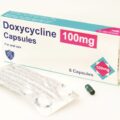A urinary tract infection (UTI) is an infection of the urinary system. This type of infection can involve your urethra (a condition called urethritis), kidneys (a condition called pyelonephritis) or bladder, (a condition called cystitis). Your urine typically doesn’t contain bacteria (germs).
Symptoms
Urinary tract infections don’t always cause signs and symptoms, but when they do they may include:
- A strong, persistent urge to urinate
- A burning sensation when urinating
- Passing frequent, small amounts of urine
- Urine that appears cloudy
- Urine that appears red, bright pink or cola-colored — a sign of blood in the urine
- Strong-smelling urine
- Pelvic pain, in women — especially in the center of the pelvis and around the area of the pubic bone
UTIs may be overlooked or mistaken for other conditions in older adults.
Causes
Urinary tract infections typically occur when bacteria enter the urinary tract through the urethra and begin to multiply in the bladder. Although the urinary system is designed to keep out such microscopic invaders, these defenses sometimes fail. When that happens, bacteria may take hold and grow into a full-blown infection in the urinary tract.
The most common UTIs occur mainly in women and affect the bladder and urethra.
Infection of the bladder (cystitis). This type of UTI is usually caused by Escherichia coli (E. coli), a type of bacteria commonly found in the gastrointestinal (GI) tract. However, sometimes other bacteria are responsible.
Sexual intercourse may lead to cystitis, but you don’t have to be sexually active to develop it. All women are at risk of cystitis because of their anatomy — specifically, the short distance from the urethra to the anus and the urethral opening to the bladder.
Infection of the urethra (urethritis). This type of UTI can occur when GI bacteria spread from the anus to the urethra. Also, because the female urethra is close to the vagina, sexually transmitted infections, such as herpes, gonorrhea, chlamydia and mycoplasma, can cause urethritis.
Risk factors
Urinary tract infections are common in women, and many women experience more than one infection during their lifetimes. Risk factors specific to women for UTIs include:
Female anatomy. A woman has a shorter urethra than a man does, which shortens the distance that bacteria must travel to reach the bladder.
Sexual activity. Sexually active women tend to have more UTIs than do women who aren’t sexually active. Having a new sexual partner also increases your risk.
Certain types of birth control. Women who use diaphragms for birth control may be at higher risk, as well as women who use spermicidal agents.
Menopause. After menopause, a decline in circulating estrogen causes changes in the urinary tract that make you more vulnerable to infection.
Other risk factors for UTIs include:
Urinary tract abnormalities. Babies born with urinary tract abnormalities that don’t allow urine to leave the body normally or cause urine to back up in the urethra have an increased risk of UTIs.
Blockages in the urinary tract. Kidney stones or an enlarged prostate can trap urine in the bladder and increase the risk of UTIs.
A suppressed immune system. Diabetes and other diseases that impair the immune system — the body’s defense against germs — can increase the risk of UTIs.
Catheter use. People who can’t urinate on their own and use a tube (catheter) to urinate have an increased risk of UTIs. This may include people who are hospitalized, people with neurological problems that make it difficult to control their ability to urinate and people who are paralyzed.
A recent urinary procedure. Urinary surgery or an exam of your urinary tract that involves medical instruments can both increase your risk of developing a urinary tract infection.
Should I Use Augmentin For Urinary Tract Infection (UTI)
Augmentin contains a combination of amoxicillin and clavulanate potassium. Amoxicillin is a penicillin antibiotic that fights bacteria in the body. Clavulanate potassium is a beta-lactamase inhibitor that helps prevent certain bacteria from becoming resistant to amoxicillin. Augmentin is a prescription antibiotic used to treat many different infections caused by bacteria. It is an important drug in the treatment of urinary tract infections.
How should I take Augmentin For UTI?
Take Augmentin exactly as prescribed by your doctor. Follow all directions on your prescription label and read all medication guides or instruction sheets. Augmentin may work best if you take it at the start of a meal.
- Take the medicine every 12 hours.
Do not crush or chew the extended-release tablet. Swallow the pill whole, or break the pill in half and take both halves one at a time. Tell your doctor if you have trouble swallowing a whole or half pill.
Shake the oral suspension (liquid) before you measure a dose. Use the dosing syringe provided, or use a medicine dose-measuring device (not a kitchen spoon).
This medicine can affect the results of certain medical tests. Tell any doctor who treats you that you are using Augmentin.
Use this medicine for the full prescribed length of time, even if your symptoms quickly improve. Skipping doses can increase your risk of infection that is resistant to medication. Augmentin will not treat a viral infection such as the flu or a common cold.
What should I avoid while taking Augmentin?
Avoid taking this medicine together with or just after eating a high-fat meal. This will make it harder for your body to absorb the medication. Antibiotic medicines can cause diarrhea, which may be a sign of a new infection. If you have diarrhea that is watery or bloody, call your doctor before using anti-diarrhea medicine.
Augmentin side effects
Get emergency medical help if you have signs of an allergic reaction to Augmentin (hives, difficult breathing, swelling in your face or throat) or a severe skin reaction (fever, sore throat, burning eyes, skin pain, red or purple skin rash with blistering and peeling).
Call your doctor at once if you have:
- severe stomach pain, diarrhea that is watery or bloody (even if it occurs months after your last dose);
- pale or yellowed skin, dark colored urine, fever, confusion or weakness;
- loss of appetite, upper stomach pain;
- little or no urination; or
- easy bruising or bleeding.
Common Augmentin side effects may include:
- nausea, vomiting; diarrhea;
- rash, itching;
- vaginal itching or discharge; or
- diaper rash.
This is not a complete list of side effects and others may occur. Call your doctor for medical advice about side effects.
What other drugs will affect Augmentin?
Tell your doctor about all your other medicines, especially:
- allopurinol;
- probenecid; or
- a blood thinner – warfarin, Coumadin, Jantoven.
This list is not complete. Other drugs may interact with amoxicillin and clavulanate potassium, including prescription and over-the-counter medicines, vitamins, and herbal products. Not all possible drug interactions are listed here. SEE: Can Doxycycline Treat Urinary Tract Infection (UTI)?





